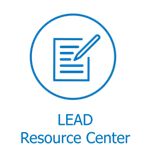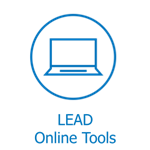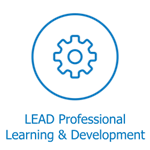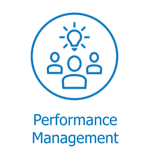
-
Announcements
Content Accordion
-
Complete LEAD End-of-Year Evaluations and Conversations by June 30 [published 5/19/2025]
The 2024-25 End-of-Year (EOY) performance evaluation window for the Leadership Excellence and Development (LEAD) framework is May 19 - June 30.
SCHOOL LEADER NEXT STEPS:
- Review action items in the LEAD Timeline
- Complete and share your LEAD self-reflection in GPS
- Work with your manager to coordinate a timeline for the completion of your self-reflection
EVALUATOR NEXT STEPS:
- Review the LEAD EOY Slide Deck
- Request Leader CollaboRATE results from the school leader you are evaluating to help inform their EOY evaluation (if available)
- Draft and share LEAD evaluations in GPS 24 hours in advance of conversations
- All evidence, and rationale justifying ratings, must be entered directly into GPS
- Host conversations by June 30
-
Get Ready for the LEAD End-of-Year Performance Evaluation Window [published 5/2/2025]
The LEAD end-of-year (EOY) window is May 19 - June 30.
Information about the EOY process will be widely communicated to LEAD eligible team members on May 20th. Feel free to review this EOY slide deck now, as it provides step by step instructions for evaluators.
-
Workaround for Self-Reflecting on LEAD Goals in GPS [published 2/7/2025]
For Mid-Year 2025, the ability to self-reflect on LEAD goal progress in the GPS is not available. Use the LEAD Self-Reflection for Goals document to self-reflect on your LEAD goals; provide evidence on progress and select a rating for each goal. Once completed, download the document into a PDF (File, Download, PDF Document) and upload the PDF into the GPS. See step 5 in the How-To Guide to upload the PDF.
-
Complete LEAD MY Self-Reflection and Evaluations by Jan 31 [published 12/3/24]
The LEAD Mid-Year (MY) performance conversation window for the 2024-25 SY is Dec 9 - Jan 31.
During MY conversations, school leaders and their evaluators meet to discuss demonstration of competency indicators, current areas of strength, opportunities for growth, and progress toward goals. Together, they review the body of evidence, including benchmarks and evidence as defined by the LEAD Framework and update as necessary. In addition, the evaluator provides specific action steps for professional practice competencies.
Next Steps:
- Evaluators launch MY form in GPS
- Review Mid-Year for School Leaders
- Review Best Practices for School Leaders
- Determine a timeline with your manager to complete your self-assessment in GPS
-
Add LEAD Goals to the GPS by Nov 1 [published 10/22/2024]
The new Growth and Performance System (GPS) is now live and ready for school leaders to add their goals.
Goal setting is an important part of our growth and performance cycle and is an opportunity for each school leader to connect their work directly to the LEAD Framework, DPS Strategic Roadmap, and individual school plans.
What’s next?
- Review the BOY Goal Setting Resource
- Access the GPS through the direct link on the Commons page.
- Use this guide to enter 2-4 goals in the GPS by Nov 1.
-
Host LEAD Beginning-of-Year (BOY) & Goal Setting Conversations by 9/27/2024
The new Growth and Performance System (GPS) has a target launch date of September 17, therefore goals need to be temporarily documented outside of the system. Please use a Google document to capture goals and plan to transfer into the GPS once it is live.
Goal setting is an important part of our growth and performance cycle and is an opportunity for each school leader to connect their work directly to the LEAD Framework, DPS Strategic Roadmap, and school plans.
What’s next?
- Review the BOY Goal Setting Resource
- Set 2-4 goals by Sept 27
- Note: Principals must have a LEAD MLE goal if they:
- did not receive an overall “Effective” MLE Program Implementation Rating and/or
- did not receive an “Effective” MLE Program Effectiveness Rating
-
Changes to LEAD for 2023-24 SY
NEW! Measures of Growth & Performance
NEW! Body of Evidence Collection Document in SchoolMint
NEW! Performance Cycle Timeline
Learn more about the changes to LEAP, with the resources provided below:
-
Leadership Excellence and Development (LEAD)

DPS developed the LEAD Growth and Performance System to empower school leaders and enhance student achievement. The LEAD Framework defines excellence in school leadership and supports leaders in honing their skills by identifying strengths and areas for growth.
Aligned with our teacher-focused growth and performance system, LEAP (Leading Effective Academic Practice), LEAD ensures that all educators receive the support they need to grow and excel.
By establishing district-wide expectations for school leadership, the LEAD Framework serves as the foundation for recruitment, selection, leadership preparation, performance evaluations, professional development, and succession planning. In essence, it provides a clear vision of what exceptional school leadership looks like.
LEAD eligible employees include: Principals, Assistant Principals, and Deans.
-
LEAD Framework Components
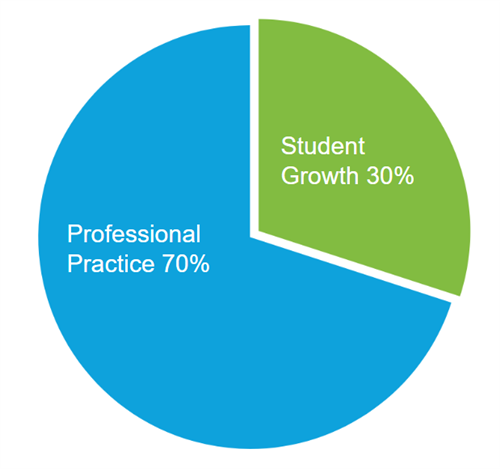
LEAD evaluation is made up of 70% professional practice and 30% student growth.
Click on each Framework Component listed below to view more detailed information.
LEAD Components Accordion
-
Professional Practice
Professional practice is measured by the six competencies in the LEAD Framework.
LEAD Framework Competencies:- Instructional Expertise
- Vision & Strategy
- People & Culture
- Community & Equity
- Personal & Values
- Operational & Organizational
-
Student Growth
Student growth is measured by School Performance Framework (SPF) growth and individual goals for student growth.
- For SY 2024-25, ALL required components of educator evaluation are required by the Colorado Department of Education. Educator evaluations are 70% Professional Practice & 30% Student Growth. For SY 2024-25, student growth within educator evaluations will be comprised of the following:
- 20% Individual LEAD Goals
- 10% Collective Measure= school-wide SLO Percent of Points Earned for SY 2024-25
 All principals, assistant principals, and leaders of others create and submit 2–3 leader-selected student growth goals. Student growth goals are intended to highlight school leaders’ primary areas of focus and are intended to align with the school’s Unified Improvement Plan (UIP) and Strategic School Plan.
All principals, assistant principals, and leaders of others create and submit 2–3 leader-selected student growth goals. Student growth goals are intended to highlight school leaders’ primary areas of focus and are intended to align with the school’s Unified Improvement Plan (UIP) and Strategic School Plan. -
MLE Program Implementation Rating (For Principals Only)
The Consent Decree guides School Leaders’ implementation of efficient and effective practices to provide multilingual students with skills they need to meaningfully and equally participate in school.
Implementation of MLE programming is measured through multiple competencies in the School Leadership Framework. In addition, as part of our Consent Decree commitments, principals receive a separate MLE Program Implementation Rating, assigned by the Collaborative Director, that is part of their annual LEAD evaluation. To receive an “Effective” MLE Program Implementation LEAD rating, leaders must meet Consent Decree requirements, as outlined in the MLE Program Review and MLE Service Plan.
The MLE Program Review is completed in the spring by the MLE department, and the MLE Service Plan is completed in partnership with the school leader throughout the year to support ongoing MLE program improvements.
MLE Program Implementation Rating Key Components (provided May/June):
- MLE Program Review
- MLE Service Plan
MLE Program Effectiveness (formerly Evidence of Impact) Rating Key Components (provided August/September):
- This measure looks at MLL student outcomes (Assessment data for MLLs, including ACCESS), used to inform LEAD MLE Goal Setting, MLE Service Planning & Unified Improvement Planning (UIP)
If a leader does not receive an overall “Effective” MLE Program Implementation Rating, and/or does not receive an “Effective” MLE Program Effectiveness Rating, one of their LEAD goals must have an MLE focus. The LEAD MLE goal should be focused on MLE data areas where the school has an opportunity for growth (MLE Service Plan) and align to the UIP (see example LEAD MLE goals).
CONTACT US
-
Office of Talent
1860 Lincoln Street, 9th Floor
Denver, CO 80203LEAD@dpsk12.org
720-423-2600Marlyn Ruiz
Site Manager




